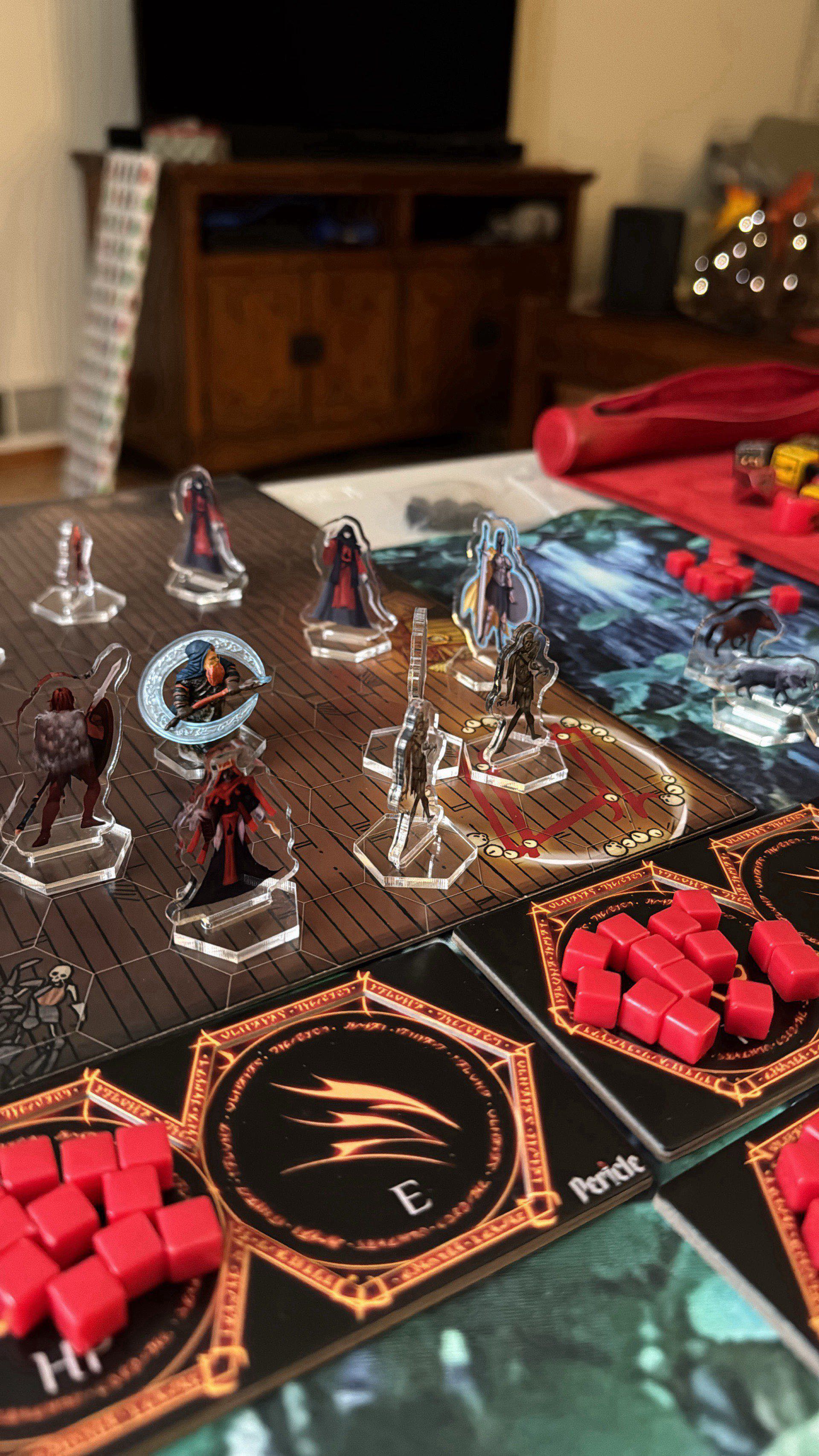For the first time in decades I am playing through a long campaign role-playing game. And because I wanted to support the developers of this particular game, I threw a lot of money into add-ons. In this case, that meant purchasing a branded journal for the game.
At first, I merely made notes about bits of lore and the various artifacts and NPCs I found or encountered. But, then I began to add more detailed descriptions and even thoughts and predictions about where the story was heading. I did this at first because this semester I have been teaching a full-time course load in the evenings after teaching continuation school students all day. And my game board has often had to sit idle for a week at a time between sessions. The journal helped me pick up right where I had paused days before and I could jump right back into the game.
A couple things here; first, I am a lucid dreamer, and second, I like to fully immerse into my character in RPGs. I may write more about the lucid dreaming at some later date. For now, just know that I have entered the game in my dreams and I can actually “play” my character while I am in lucidity. I have to say, it’s pretty cool. But for now, the important thing to understand is that this immersion and connection to the game is therapeutic for me.
I have done a lot of work to defeat my trauma. And due to the nature of my trauma exposure, few people know about it. It’s not that I am embarrassed by my scars, it’s just that I don’t want certain loved ones to find out that I had a couple really bad days in the service, and also how close I came to dying from sepsis in my 40s. As far as they need to know, I was always safe.
One of the themes of this blog is my belief that tabletop gaming is a powerful tool for trauma recovery. And for me, journaling has increased the potency of the informal therapy that gaming provides. I have found that I now am writing my own thoughts and experiences in the game journal. Typically, I am sketching notes about:
- my mood, emotional state, and feelings while I play
- events or NPCs within the game that resonate with me
- connections between in-game events and my real life experiences that seem important to me
- parallels to real life struggles and victories.
These scribblings are barely legible sometimes, and even if they could be deciphered, the reader would be unlikely to understand much. But that isn’t the point. While I play, and write, I am creating more dispersed neural networks in my brain. These are in turn remapping how my neurons communicate about my trauma to my own consciousness. And this remapping is healing.
Maybe it all seems like a lot of work. That’s fair. I admit that I am odd in this sense. My favorite tabletop game as a kid was Starfleet Battles which has been compared by some reviewers as “doing your taxes.” But life is work. And by having active tasks in my gaming experience, I find that the game is more connected to my life.
I’ve been teased about my deeper than average connection to my RPG characters. But this is how they help me process real world issues. And I am far from the only person who brings the fantasy into daily life. This is literally the crux of geek culture. And we should be proud of our so-called nerdiness and our various fandoms. In the end, they are all about relationships and connections with others who love the same things we do.
For me, journaling while playing TTRPGs not only enhances the fun. It allows me to build healing and connection from the inside out.
And it also helps me justify the cost of this hobby - which creates more harmony in my home.
Have a wonderful Thanksgiving, and I hope you have some time to unwind and play.
Be well. 


No comments:
Post a Comment